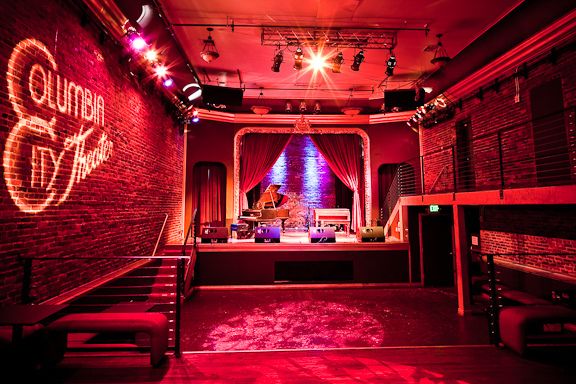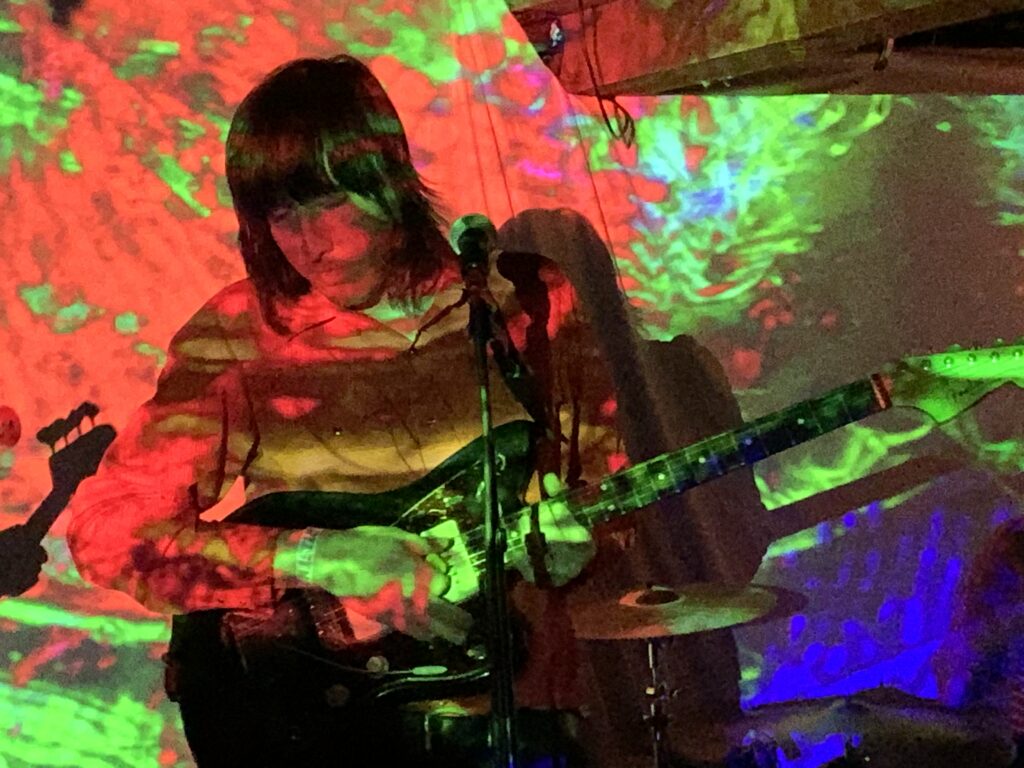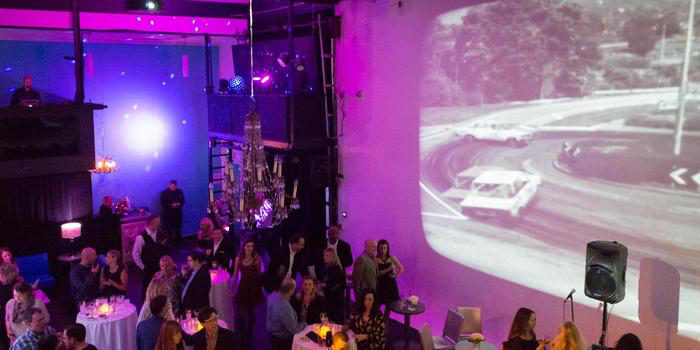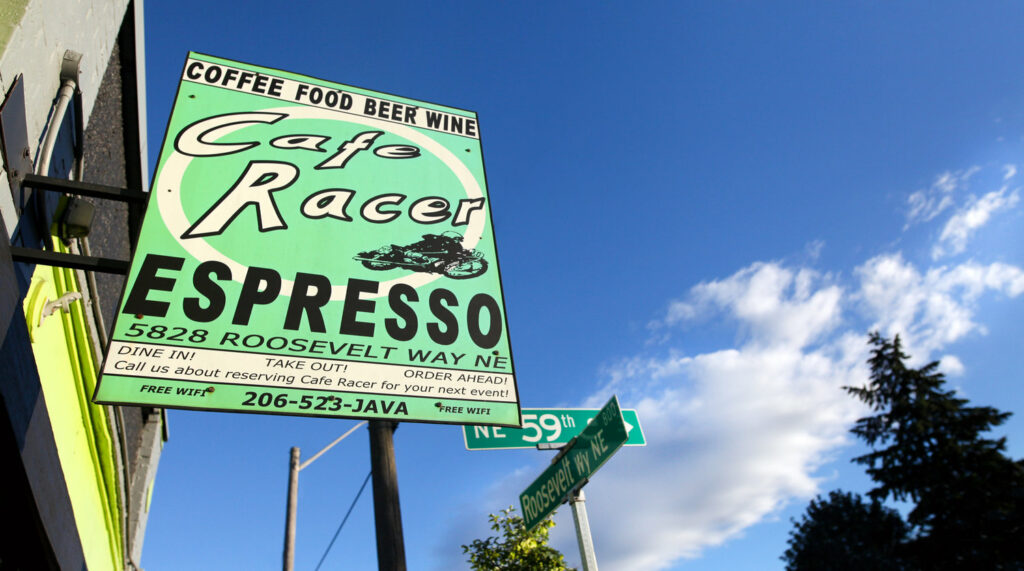Six Indie Music Venues on Keeping Their Doors Open (and the Music Alive)

As we detailed previously, small- and medium-sized clubs are increasingly important vertebrae in Seattle’s cultural spine. They are the places where bands hone their craft, build their audience and make a modest income so that they can become household names in the future. There is no Head and the Heart without Conor Byrne. No Thunderpussy playing New Year’s Eve at the Showbox without the Sunset or Tractor Tavern.
But what does it mean to run or own a music club? Or, to put it another way: What is the most difficult thing about operating a small music club and why does one do so? That’s what we asked six individuals who work to keep small clubs open and, as much as can be expected, viable. Here we talk with Mark Jones, Max Genereaux, Chris Pink, Jeff Ramsey, Andrew Nunez and Matt Larson.
Mark Jones, Production Manager, Columbia City Theater
What is the hardest thing about keeping CCT’s doors open?
I think one of the hardest things in general is finding consistency in booking, but that’s something that all venues deal with. Every venue on the planet is going to have great nights and terrible nights. Music venues are just another form of gambling really. You book something and try to predict how well it will do. Sometimes you’re pleasantly surprised. Sometimes you’re severely disappointed. At the end of the day, as long as we have enough money to pay the employees and keep the lights on, we’re stoked.
What do you love about doing so?
There are these moments that you get to be a part of that can be completely amazing. One that sticks out in my memory is, a couple years ago I was sitting in the office and the phone rang. On the other end was a woman who told me that her family was flying up from California to come to a show at the theater. Her husband had just been given a few months to live and the artist that they were coming to see was the first show he had taken their daughter to years prior and the show they were coming to was going to most likely be their last together. All the woman wanted was a chair for her husband to sit in because he couldn’t stand for very long. I assured her we would have a chair for him.
Night of the show, I told the story to the promoter and the tour manager and we ended up arranging it so the whole family could come up to the greenroom and meet the artist. When the show was over the woman gave me a hug, thanked me and the promoter and told us how much the whole thing meant to their family. It’s those kinds of moments that make the stress of running a venue 100% worth it.

Max Genereaux, Owner, The Sunset Tavern
What is the hardest thing about keeping The Sunset’s doors open?
There are always challenges in any business. People and equipment are prone to throw you curveballs at any given time. But, I don’t think there is a single hardest problem for us. We’ve been doing this for over 19 years so we’ve had some time to trouble shoot, solve problems and create systems for the type of venue and business that we operate. Working with people who are smart and talented helps immensely.
What do you love about doing so?
My favorite thing about running The Sunset, and all of my bars, is creating jobs that employees enjoy and experiences that customers enjoy.
Chris Pink, Owner Fred Wildlife Refuge and Can Can

What is the hardest thing about keeping Fred’s doors open?
Rising rents without the ability to charge more for our services coupled with the rumors that our building is being developed, sold, torn down – whatever the rumor of the week seems to be. Add city bureaucracy frosting and the state cherry on top and you have yourself a Fred cake.
What do you love about doing so?
Providing a soap box for under-represented communities on the hill and the variety of art we are able to house keeping the hill grounded and sheltered from the rest of city and the bro culture at 10th and Pike. Fostering everything from poetry & literature, Can Can Productions Studios, secret salon events, next level drag with the Beauty Bois, Hill icon Lady Krishna, genius electronic artists like Pezzner and everything in between. This all exists under one roof in total harmony. It’s a rare beast and I love it.

Jeff Ramsey, Owner, Café Racer
What is the hardest thing about keeping Café Racer’s doors open?
Revenue and cash flow are consistently the hardest things to manage. Like most smaller venues, Café Racer has a very small margin. A slow week, equipment breakdown, someone out sick that pushes us into overtime for replacement staff, kills any buffer we may have been able to secure. Café Racer can hold just a little over 100 patrons at a time so consistent show attendance is a must for us to remain viable.
What do you love about doing so?
I love that we are this incredible artistic and community center. Café Racer is where so many of Seattle’s up and comers get their start. Bands like The Whags, BEARAXE, DoNormaal, Naked Giants have all performed here in the last year and it makes us proud to watch their stars rise! With just a little more consistent support, Racer can be comfortably sustainable and an important part of the Seattle music scene for year’s to come.
Andrew Nunez, Owner, the Sea Monster
What is the hardest thing about keeping the Sea Monster’s doors open?
Change is always the biggest challenge. Smooth sailing never lasts for long. Currently the hardest thing I’m dealing with is another audit by L & I where they are trying (again) to say musicians that perform here on a regular basis are my employees. We’re going to court to ask a judge to define where the line gets drawn between independent contractor and employee? How many performances in a week/month/quarter constitute “regular employment”? If they are successful then musicians performing once a week and less (10 times per quarter) will need to fill out time cards and get paychecks like my bar employees. California is doing the same thing by passing a new law.
What do you love about doing so?
My spirit is lifted at the Sea Monster by the music and the people I share it with. I take great pride in providing the best show possible at the best price for my people. It gives me the most satisfaction when everyone has an amazing time (and we all make money). I wish I could strip it down to just that because that is golden.
Matt Larson, Owner, The Skylark
What is the hardest thing about keeping The Skylark’s doors open?
The unpredictability of business. We book primarily local bands but most of the time we also attach a touring band to the bill. We assume the touring band doesn’t have much of a draw so we hope that the local bands can pull in a crowd. On any given night, I’m not sure if 20 or 100 people are going to come out for a show. The only real prognosticator I have is a Facebook event page and you can guess how reliable that is!
We make it clear in our advance that due to our location there is almost no foot traffic so the bands have to do their part to try and bring in THEIR crowd. How we are able to make this able to work is the size or our venue. While the relatively small occupancy does hinder our ability to draw larger acts, it does keep us in a sweet spot where I don’t have to have a huge staff going into a Friday or Saturday night.
The hardest part is when the local bands have done nothing at all to promote, nobody shows, and the touring bands don’t get a crowd to buy some merch or get some gas money. Booking smaller touring bands is not the financially best decision for us, but it is how small touring bands are able to build their brand and has always been a cornerstone of bands gaining traction in an increasingly difficult and unforgiving business to navigate.
What do you love about doing so?
The definition of Hospitality is: the friendly and generous reception and entertainment of guests, visitors or strangers. I love live music, good food, tasty drinks and good conversation. I love to be able to bring a large volume of people together and share those things on a regular basis. Since high school, I’ve always had house parties and get-togethers that involved music, preparing and sharing food and just sharing moments together. This venture is a continuation of that. You throw in the communal feeling and shared brain waves that derive from large groups of people listening to music together, and it makes for a pretty damn good time!